ГДЗ Англійська мова 6 клас. Підручник Prepare 6 [Джоанна Коста, Мелані Вільямс] 2023
Unit 8. Favourite places.
Сторінка46Vocabulary and Reading
1. Match the photos A - K to the words in the box.
A - carpet; В - armchair; C - lamp; D - cushion; E - chest of drawers;
F - cupboard; G - photographs; H - blanket; I - curtains; J - bookshelf; K - mirror.
Pronunciation
2. Look at the words in the box and put them in the correct column in the table.
/з:/ bird: curtains, first, furniture, were, work
/о:/ board: bought, drawers, floor, saw, wall.
3. What do you have in your bedroom?
I have a bed, a table, a chair and a wardrobe in my bedroom.
4. Read the article. Which of the things from Exercise 1 are NOT mentioned in Rebecca's article?
cupboard.
2. Look at the article again. Find seven sentences or questions with the words in Exercise 1.
1. Everyone needs a favourite place.
2. Is it in your bedroom or in the sitting room or somewhere else?
3. Remember, no one is the same, so everyone is favourite place is different.
4. Anyone can make their place special.
5. You don't really need anything else.
6. Use something like cushions to give colour to your bed.
7. Maybe you don't have one, but you want to make somewhere you like special.
3. Complete the pronouns with - thing, - one or - where.
1. Comething gave me this hat. Do you like it?
2. Can you think of anywhere to go today?
3. I'm hungry, but there's nothing in the fridge!
4. No one told me that you wrote stories!
5. Everyone in the class likes the colour blue.
6. Do you remember someone about the film?
7. The bookshelf is empty. There is nothing on it.
8. It's very dark. I can't see anything.
9. I learn someone new in English every day.
10. I don't need any help thanks. I can carry one.
4. Complete the sentences with anything, everything, nothing or something.
1. Please tell me everywhere about your holiday.
2. I don't have anything to do next weekend.
3. You don't need to bring anything else.
4. You can write anything you like.
5. I can't see anyone.
6. I want to buy something at the supermarket.
5. For each question, choose the correct answer.
1 - B; 2 - C; 3 - C.
Сторінка 47
5. Read the article again. Are the sentences right or wrong?
1. Rebecca has got three pieces of furniture in her favourite place. - Wrong.
2. Rebecca's photographs are next to the mirror. - Wrong.
3. She says it's nicer to have light from a window. - Right.
4. She has ideas for a favourite corner without any furniture. - Right. Grammar
1. Look at the table. Match the words in 1 - 3 to a - c.
1 - c; 2 - a; 3 - b.
Vocabulary
1. Match the verbs in box A to the words and phrases in box B. The verbs can be used more than once.
draw: pictures;
listen to: the drums, the guitar, music, songs, stories;
paint: pictures;
play: computer games, the drums, the guitar, music, songs;
read: a blog, a diary, magazines, stories;
write: a blog, computer games, a diary, music, songs, stories.
Сторінка 48
Reading
2. Read the article. Match the photos A - C to the artists in the article.
What is each artist's favourite place?
1 - B; 2 - A; 3 - C.
Gemma's favourite place is the north - west coast of Scotland.
Daryna's favourite place is her town in Ukraine.
Paul's favourite place is his tiny flat in London.
3. Read the article again and answer the questions.
1. What did the fisherman buy from her?
He bought one of her drawings.
2. What did Daryna learn from her grandma?
Grandmother told her everything about animals and plants.
3. Why and when did she move away from home?
Because she went to music school in Dnipro. When she was 19.
4. What does she write songs about?
She writes songs about nature in and near her home town.
5. Why did Paul travel to so many countries?
Because he danced with different international dance companies.
6. What does he do when he gets home?
He lies on his bed and listens to music.
Listening
1. Listen to three teenagers, George, Ab b y and Jo, talking about their favourite places. Look at the photos A - C. Match the teenagers to their favourite places. Write the letters in column 1 of the table.
George - B; Abby - C; Jo - A.
2. Listen again. What do they liked o in g in their special places? Write the answers in column 2 of the table.
George - lying on his bed, on the cushions, reading;
Abby - sitting under a tree, writing her diary;
Jo - playing the guitar and writing songs.
Writing
Read about Tom's favourite place. Where is it? What does he like doing there?
Tom's favourite place is the beach. He likes walking along the beach without his shoes on.
Now join these sentences using so or because.
1. I'm wearing my coat because it's very cold.
2. The bus didn't come on time, so we were late for school.
3. I was tired, so I went to bed.
4. Sorry, I can't come this evening because I've got lots of homework.
Write a paragraph of about 50 words about your favourite place.
Include because and so in your writing.
My favourite place is the beach. I like water so I can spend hours in front of it. I like beach because I feel myself comfortable and easy there.
Сторінка49
2. Write eight sentences using words from box A and box B in Exercise
1.
1. My sister draws pictures every day.
2. I like listening to music when I have free time.
3. Who can play the guitar in your form?
4. My mum is a very talented person, she play songs very nice.
5. I read magazines every day to find some interesting information.
6. Our task is to read stories on summer holidays.
7. You can write a blog if you want.
8. It is a great talent to write computer games.
Сторінка50
Life skills. Physical well - being.
1. Look at the signs and answer the questions.
1. What do you think each sign means?
Be careful, hot water is dangerous. There is a fire extinguisher here. Be careful of electricity. Be careful on stairs.
2.Where can you see each sign?
Building sites, schools, offices.
3. What does a fire extinguisher do?
It puts out/stops a fire.
2. Look at the photos. Match the photos A - G to the words 1-7.
1. lighter - D; 2. rug - F; 3. knives - C; 4. heater - B; 5. iron - A; 6.
stairs - E; 7. matches - G.
Talk about the things you have in your home. How can these things be dangerous?
I have matches at home. They can be dangerous if you do not use them properly.
I have iron. It can be dangerous if you forget to switch it off.
3. Read the text quickly. Match the words in the box to the paragraphs.
Do you follow these tips at home?
1 - Burns; 2 - Falls; 3 - Cuts.
Сторінка51
4. Look at the text again. Then choose the correct answers to complete the sentences.
1. It's dangerous to (b) use lighters and matches wrongly.
2. Cookers get (b) hot You can burn yourself.
3. It's a good idea to keep a (c) fire extinguisher at home for emergencies.
4. It's not a good idea to leave (b) shoes and books on the stairs.
5. Be careful! You can (c) fall down the stairs.
6. It's dangerous to play with (a) knives and scissors.
5. Match the highlighted words in the text to the meanings.
1. iron - b. you use this on clothes.
2. heater - c. this warms the air.
3. rug - f. a soft piece of material that covers the floor.
4. sharp - a. this cuts things easily.
5. mirror - d. you can see yourself in this.
6. fire extinguisher - e. this stops fires.
6. Listen to some one talking to a class at school and choose the correct answers.
1. Who is visiting the class? - b. a firefighter; 2. What are the students learning to use? - b. a fire extinguisher.
7. In pairs, try to remember the answers to these questions.
1.Why is it dangerous to use matches and lighters?
Because if you don't use them correctly it can start fire.
2.What can you do with a fire extinguisher?
With a fire extinguisher you can stop a fire.
3.Can hot soup be dangerous?
Yes, it can burn you.
4. Why do you need to be careful with cookers, irons and heaters?
They can get hot.
5.Is it a good idea to dry your clothes on heaters? Why / Why not? No, this can start a house fire.
6.What can you leave next to the phone or on your smartphone? Emergency numbers can leave next to the phone or smartphone.
8. Now listen again and choose the correct words.
1. It's not a good idea to use lighters and matches without adults around.
2. You need to be careful with hot irons.
3. Some heaters and cookers can burn you.
4. It's good to have emergency numbers next to the phone.
Grammar
1. Choose the correct words to complete the sentences.
1 - did; 2 - climbed; 3 - got; 4 - something;
1. Your birthday party was great. Did everyone have a good time?
2. I went with my friends to the mountains and we climbed the hill.
3. Yesterday was my birthday and I got a computer.
4. Please, can you bring something to the picnic?
Correct the mistakes in the sentences.
5. Last summer, I went to the United States. Some days it was hot, but on others it rained.
6. Today, we watched a football game, but my sister didn't like it very much.
7. At my party, I danced, sang and ate and drank a lot of things.
8. I didn't do anything special.
2. Say the past simple of the verbs.
1 - began; 2 - bought; 3 - caught; 4 - flew; 5 - gave; 6 - met; 7 - slept; 8 - swam; 9 - rode; 10 - took.
3. Make sentences or questions about the past.
1. I didn't see that film last night.
2. They could cycle 50 km in a day.
3. Did you get an email this morning?
4. He travelled to India last winter.
5. We didn't stay in a hotel in London.
6. Did she have a computer in her room?
 ГДЗ 6 клас 2023 Англійська мова Підручник Коста Вільямс Prepare Лінгвіст
ГДЗ 6 клас 2023 Англійська мова Підручник Коста Вільямс Prepare Лінгвіст
 Якщо помітили в тексті помилку, виділіть її та натисніть Ctrl + Enter
Якщо помітили в тексті помилку, виділіть її та натисніть Ctrl + Enter 25.11.2023,
25.11.2023,
 8 978,
8 978,
 0
0
 Назад
Назад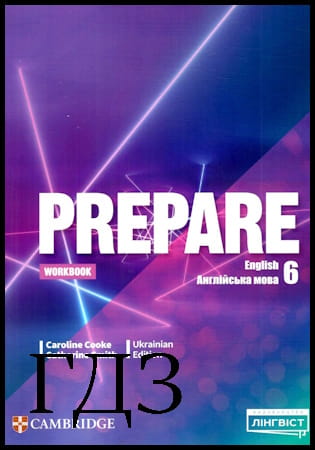
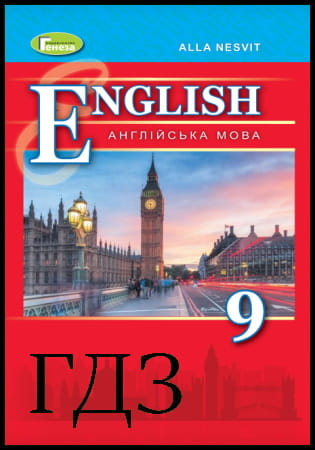
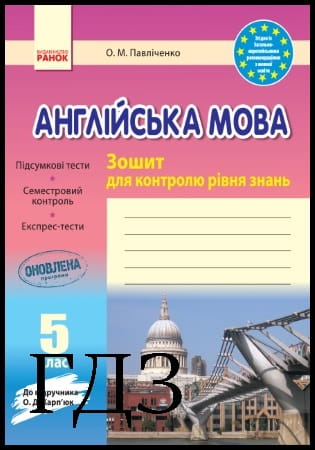
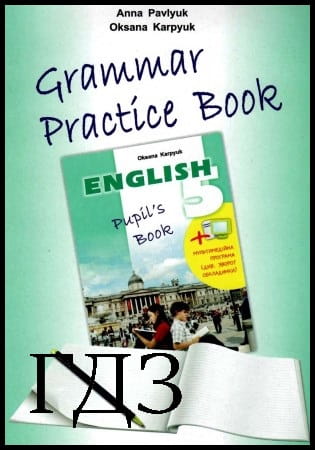
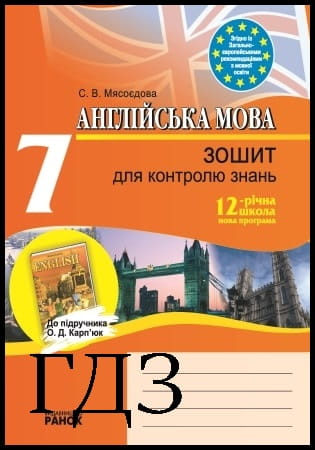
![ГДЗ Природознавство 5 клас. Підручник [Ярошенко О.Г., Бойко В.М.] 2018 ГДЗ Природознавство 5 клас. Підручник [Ярошенко О.Г., Бойко В.М.] 2018](/uploads/posts/2019-04/1555779316_5_p_y_u2018.jpg)
![ГДЗ Основи правознавства 9 клас. Підручник [Наровлянський О. Д.] 2017 ГДЗ Основи правознавства 9 клас. Підручник [Наровлянський О. Д.] 2017](/uploads/posts/2019-02/1550928122_9k_p_n_2017.jpg)
![ГДЗ Українська мова 8 клас. Підручник [Глазова О.П.] 2021 ГДЗ Українська мова 8 клас. Підручник [Глазова О.П.] 2021](/uploads/posts/2021-10/1633720388_8k_y_g_2021.jpg)
![ГДЗ Вступ до історії 5 клас. Підручник [Гісем О.В.] 2018 ГДЗ Вступ до історії 5 клас. Підручник [Гісем О.В.] 2018](/uploads/posts/2019-07/1564163269_5k_i_h_2018.jpg)